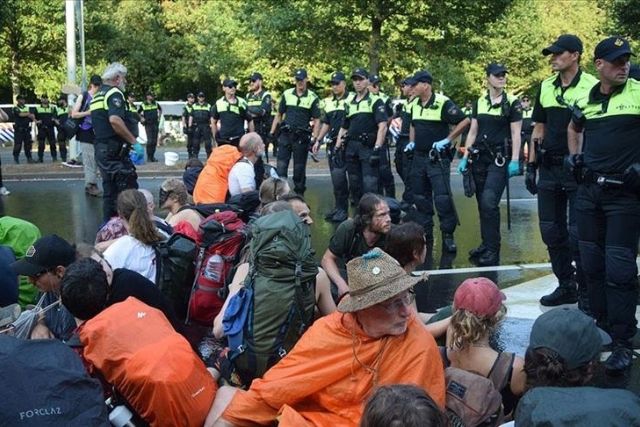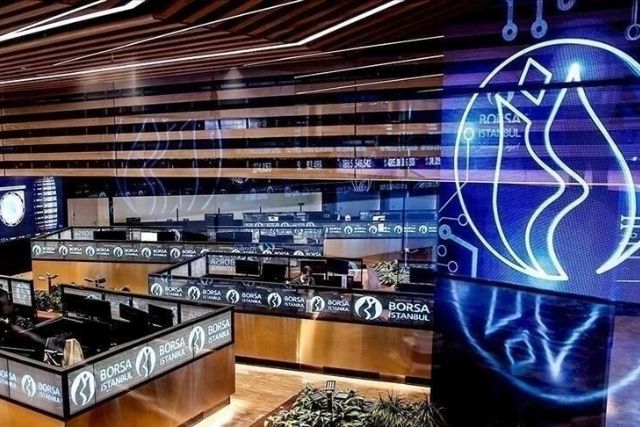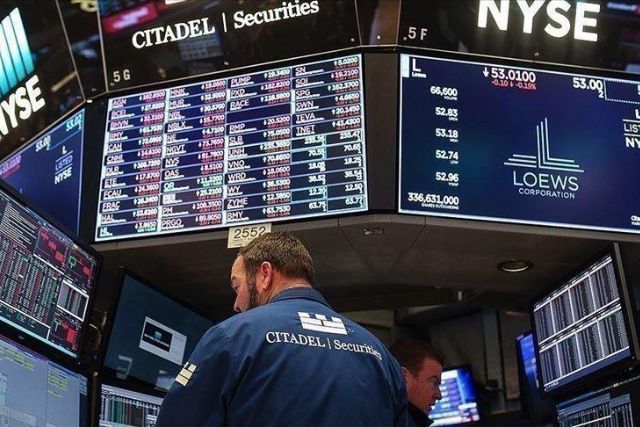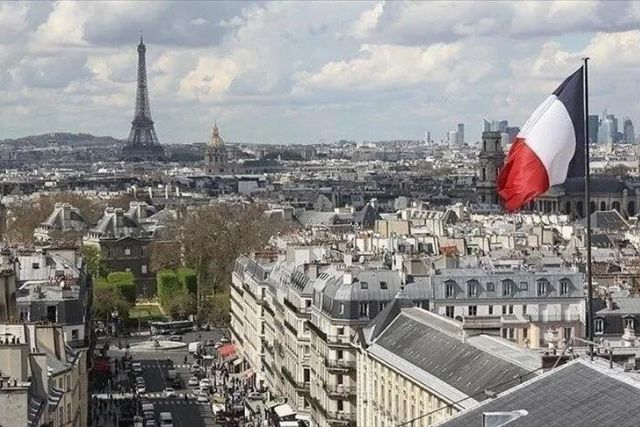Energy cooperation needed in E. Med. to ease dependence on Russian supplies
In Turkish ministers' visit to Israel, discussions should take place on Turkish companies' involvement in energy field, retired Israeli ambassador says
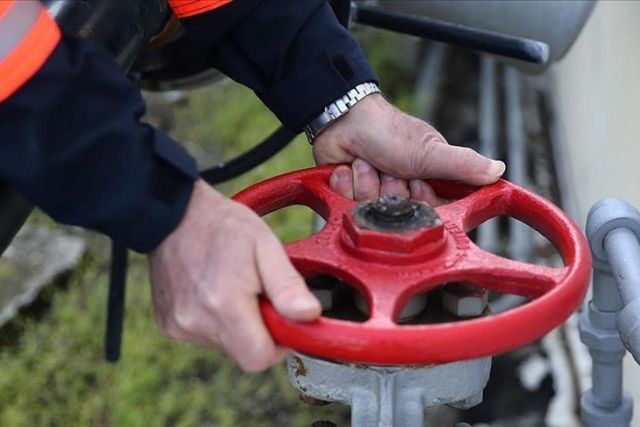
IZMIR, Turkiye
Regional energy cooperation is essential in the Eastern Mediterranean to allay the EU's dependence on Russian supplies, an Israeli expert told Anadolu Agency on Thursday.
Nimrod Goren, the founder and head of the Israeli Institute for Regional Foreign Policies (Mitvim) said in an exclusive interview that countries in the Eastern Mediterranean should accept the EU's proposal of convening an inclusive regional conference, adopting a positive agenda, identifying and advancing shared interests while seeking to establish new inclusive mechanisms.
"Eastern Mediterranean energy sources can indeed be part of the solution to the EU's dependence on Russian supplies. But, to fulfill this potential in a way that benefits all countries, the region should become a more collaborative one, with less focus on conflicts and tensions," Nimrod Goren, the founder and head of the Israeli Institute for Regional Foreign Policies (Mitvim) said.
Goren's comments came following the first high-level meeting on March 9 between Israel and Turkiye in a decade.
During Israeli President Isaac Herzog's meeting with Turkish President Recep Tayyip Erdogan, in which both presidents expressed the aim to revive bilateral relations based on common interests, they also availed of the opportunity to discuss enhancing energy cooperation.
"It is important that the meeting between the two presidents will be followed by meetings between ministers. In that regard, the plans for upcoming visits to Israel by both Turkiye's Foreign Minister and Energy and Natural Resources Minister are positive and should materialize," Goren said.
Erdogan said the "historic visit" by the Israeli president to Turkiye aims to revive bilateral political dialogue based on common interests between the two nations.
"The warm welcome in Ankara and the positive atmosphere throughout the visit were in stark contrast to the tensions and negative rhetoric that characterized bilateral ties in recent years," Goren said.
He noted that the visit was “the culmination of several months of engagement between the countries, aimed at rebuilding mutual trust, opening new policy channels of communication, and convincing skeptics that a new chapter in relations is actually feasible."
It should also serve as a stepping stone to an upcoming political decision of restoring relations at the ambassadorial level, Goren said.
Renewables and climate
Energy cooperation between the two nations should be on the agenda for the future, Goren said, stressing that this would not only entail natural gas but also renewable energy, given the transformation of the energy sector due to climate change.
"President Herzog recently spelled out a vision for regional cooperation on renewable energies and climate issues and is specifically seeking Turkish involvement in this, together with the other Mediterranean and Middle Eastern countries. It can also be beneficial for the ministers from Israel and Turkiye to examine ways to establish an inclusive Mediterranean mechanism focused on energy and climate," Goren said.
Natural gas
Goren was cautious about the outcome of renewing talks on the bilateral natural gas trade.
The possibility of exporting Israeli gas to Europe via Turkiye was among the key issues that advanced the short-lived Israel-Turkiye reconciliation in 2016. However, he said a combination of economic and geopolitical difficulties led to the shelving of this idea.
The same difficulties are still in place today, Goren said, with Israel's reluctance to engage in a project that runs against its strategic cooperation with Greece, the Greek Cypriot administration and Egypt.
He suggested that in parallel to mending ties with Israel if Turkiye also succeeds in warming relations with Egypt, new paths towards a win-win solution could open.
Nonetheless, he warned of obstacles in moving ahead with Israel and Turkiye cooperating for natural gas exports, with the continuation of the conflict on the island of Cyprus between the Greek Cypriot administration and the Turkish Republic of Northern Cyprus, and the hostilities between Israel and Lebanon.
'Turkiye could and should play constructive role in region'
Retired Ambassador and Policy Fellow at Mitvim, Michael Harari, also echoed the importance of new efforts to improve bilateral relations between Turkiye and Israel, which he hoped would be conducted with calm and clever diplomacy.
Harari favors the renewal and rediscovery of common interests through the visit of the two Turkish ministers, having had a lack of substantial governmental dialogue in the last ten years.
He stressed the need to restore trust in dealing with energy relations given that political considerations are also at play.
Bilateral ties between Israel and Turkiye came under strain in 2010 when Israeli commandos stormed the Mavi Marmara, a Turkish aid flotilla bound for the blockaded Gaza Strip, in international waters.
However, after months of talks between the two countries, Turkiye and Israel signed an agreement on June 28, 2016, to resume diplomatic relations six years after the Mavi Marmara incident.
The first working-level dialogue took place in Istanbul that year to discuss a proposed natural gas pipeline project between the two countries to transport natural gas supplies to Europe from the Leviathan gas field in the Mediterranean Sea off the coast of Israel.
However, in 2018, Turkiye had recalled its ambassador in Tel Aviv over the deadly attacks against Palestinians in the blockaded Gaza Strip, who were protesting the US administration's decision to move its embassy from Tel Aviv to Jerusalem.
Last year, Israel's then Energy Minister Yuval Steinitz said that Tel Aviv is ready to cooperate with Turkey on natural gas in the Eastern Mediterranean.
This was echoed by Israel's then Prime Minister Benjamin Netanyahu who also said that his government is in contact with several countries, including Turkey, over natural gas in the Eastern Mediterranean Sea.
President Herzog's tour, the most senior Israeli visit since 2008, seems to aim to move on from years of tension between Israel and Turkiye.
The formation of a tripartite alliance between leaders of Greece, Egypt and the Greek Cypriot administration to foster cooperation across a range of economic, political and strategic interests, and especially in the energy field to export gas from the East Mediterranean region, is also a bone of contention with Turkiye.
This alliance culminated in the informal establishment of the East Mediterranean Gas Forum (EMGF) in 2019, with the notable exclusion of Turkiye.
"From the Israeli point of view, the Egyptian angle and route of export are of great importance. The relations Israel has developed with Greece and Cyprus (Greek Cypriot administration) are very important, as well the regional architecture that has been developed. There is no contradiction with developing relations with Turkiye. Clearly, Turkiye should be part of it, but I think it is a major issue that should be discussed during these visits on how is it possible to cooperate and transfer this architecture to an inclusive one," he said.
He suggested that Eastern Mediterranean sources could be part of the solution to the EU's dependence on Russian supplies, although he said that enormous efforts on the political-strategic level are needed for such a contribution.
With the visits of the two Turkish ministers, he recommended holding discussions on the involvement of Turkish companies in the energy sector.
“Turkiye could and should play a constructive role, for example, vis a vis the ongoing efforts to reach an agreement/compromise between Israel and Lebanon. it could add value to the whole region and for the benefit of the energy potential of the East Med," he said.
Greece, Israel, and the Greek Cypriot administration inked an agreement in 2020 to build a 1,900-kilometer (approximately 1,200-mile) natural gas pipeline in the Eastern Mediterranean that would connect Israel, the Greek Cypriot administration, Crete, Greece, and ultimately Italy.
Many experts said the estimated cost of natural gas transfer would be three times cheaper if the pipeline passes through Turkiye compared to that proposed pipeline.
The US on Jan. 11 formally withdrew its support for the proposed plan. The US embassy in Athens said the Biden administration is "shifting our focus to electricity interconnectors that can support both gas and renewable energy sources."


